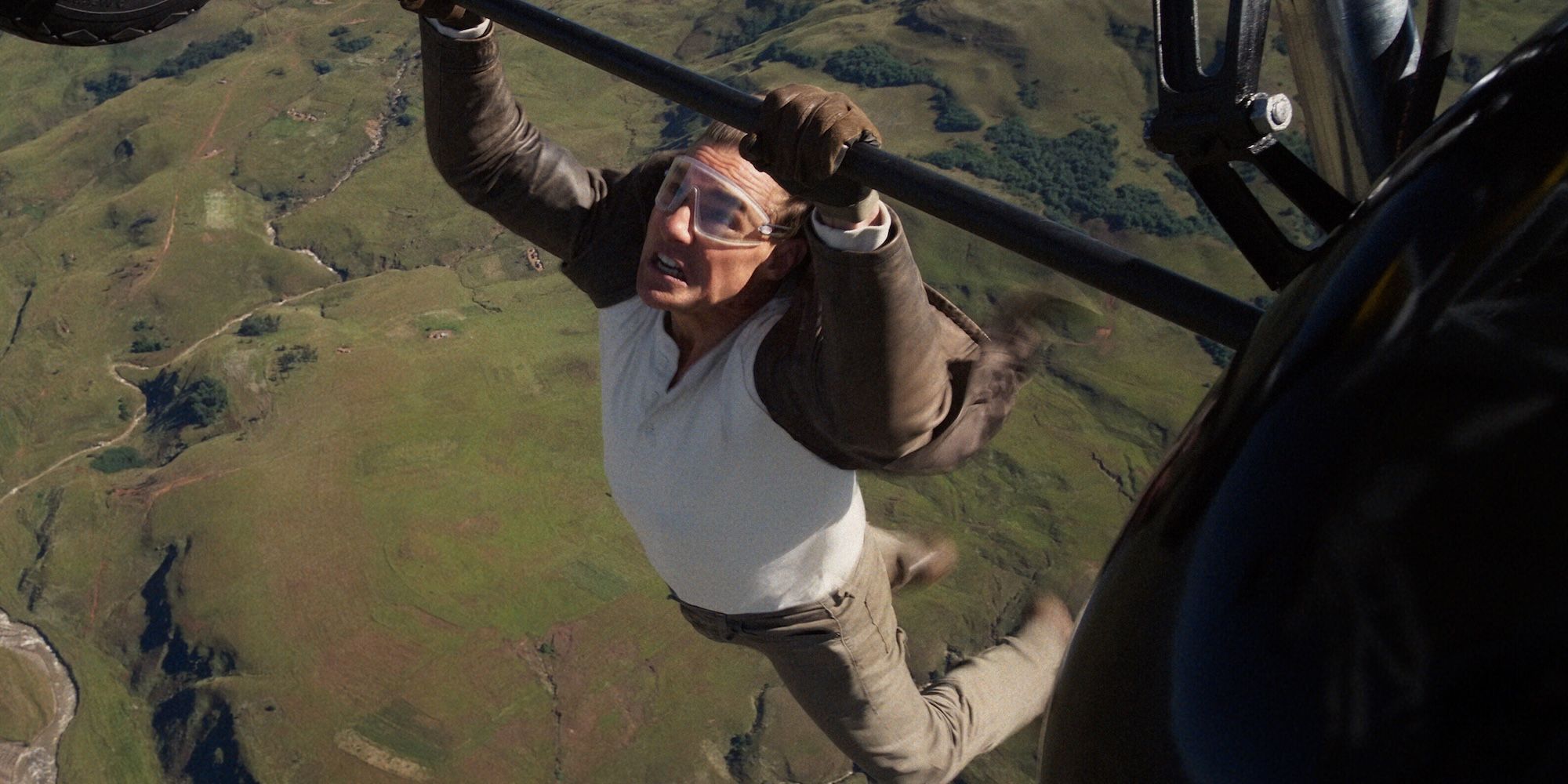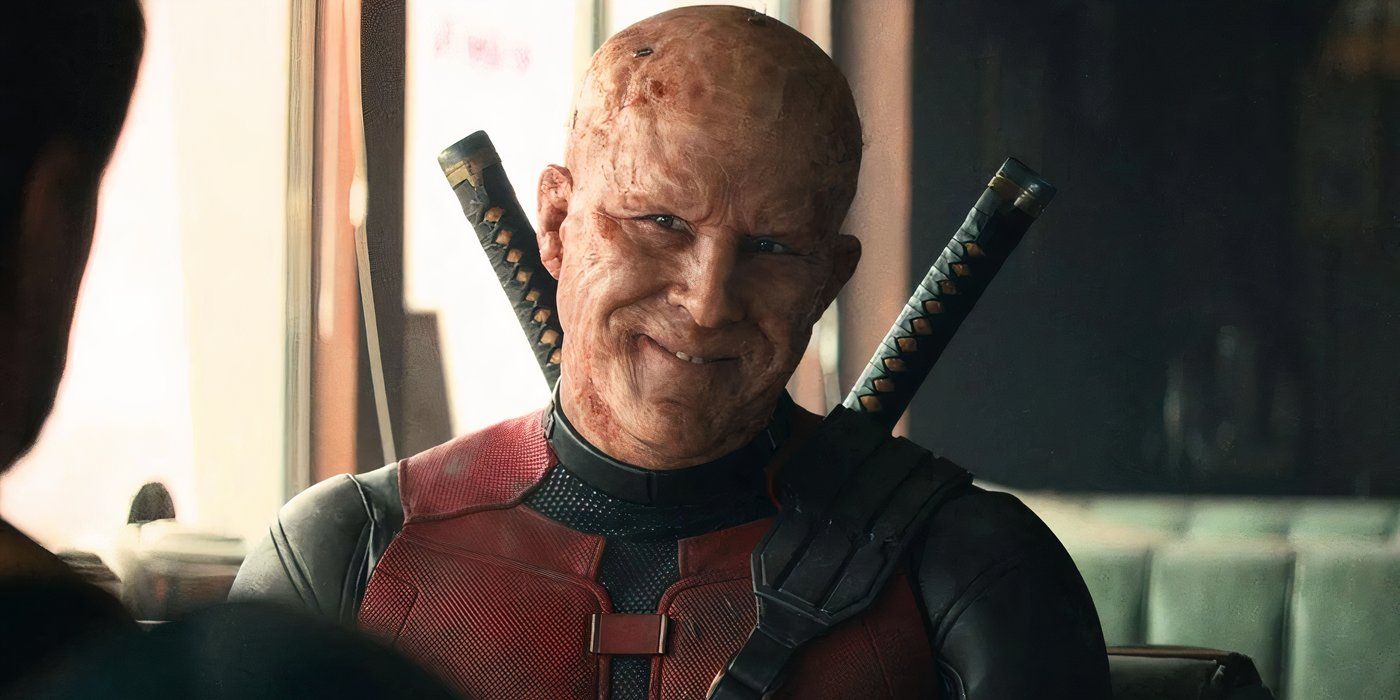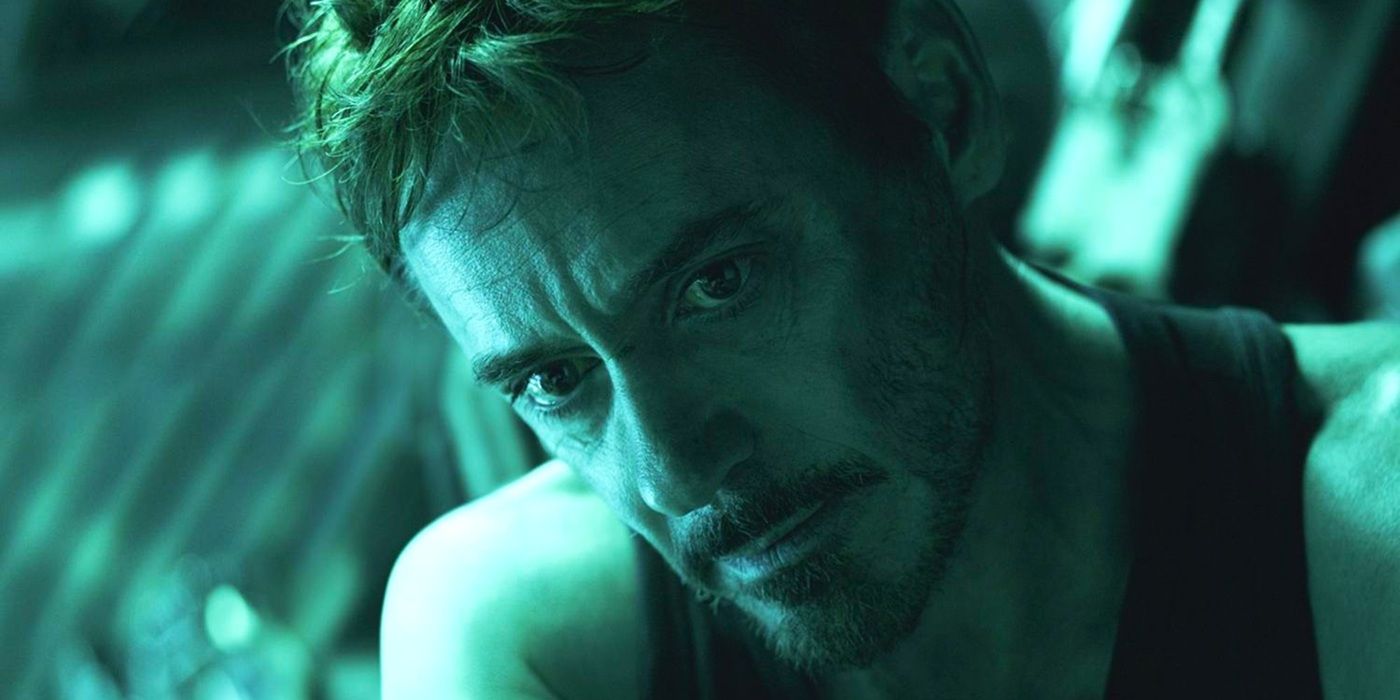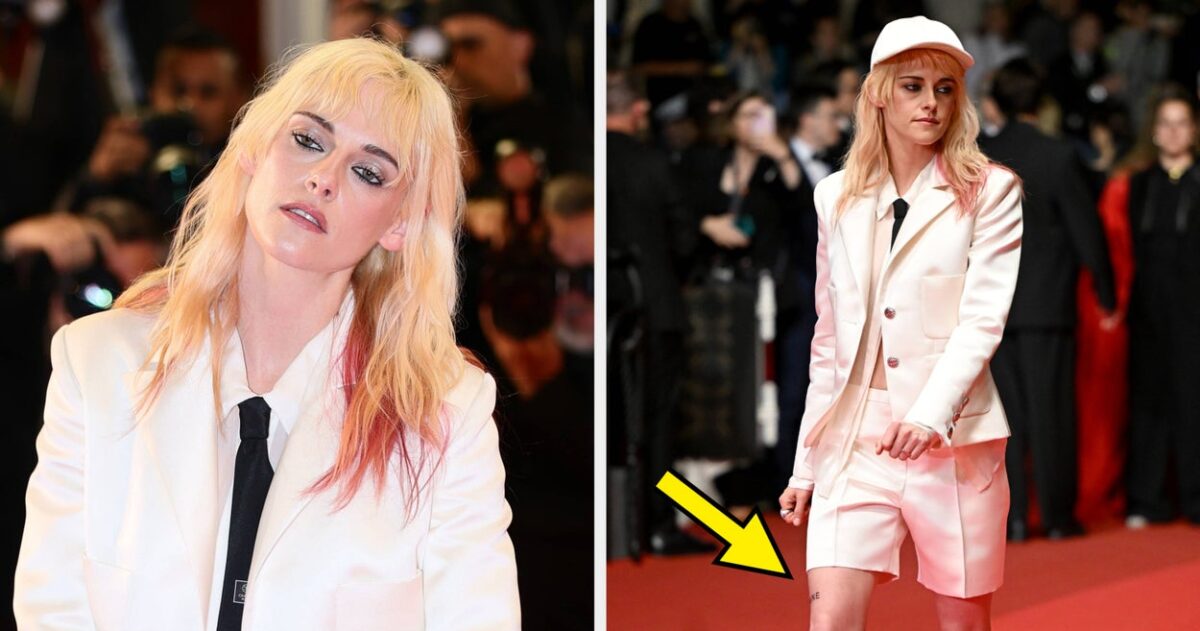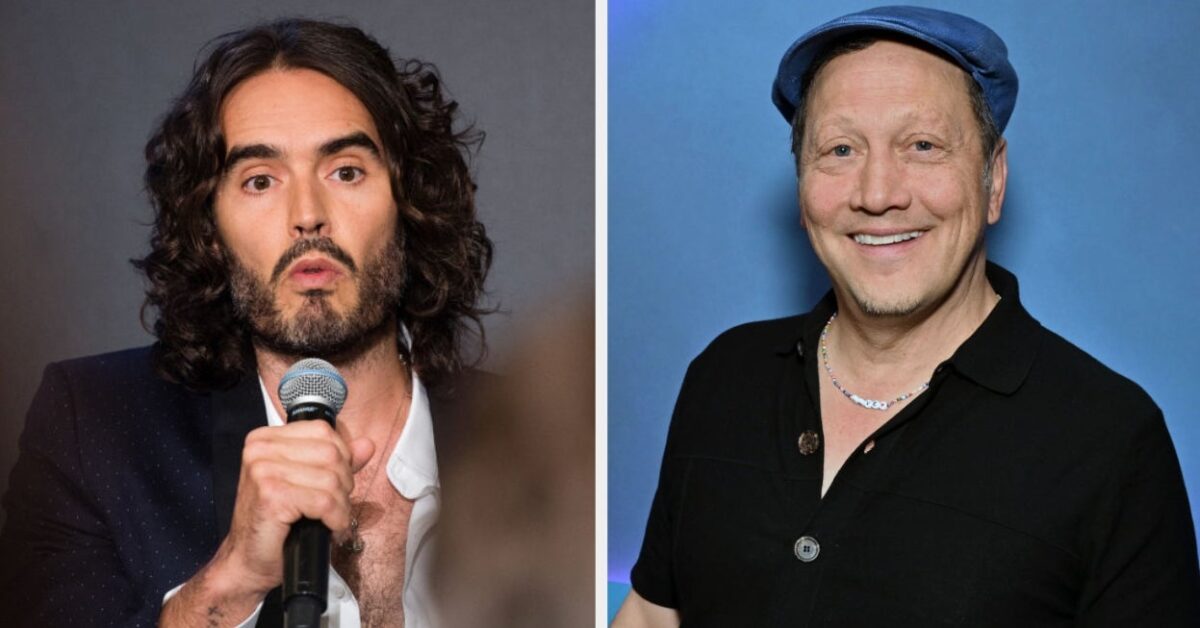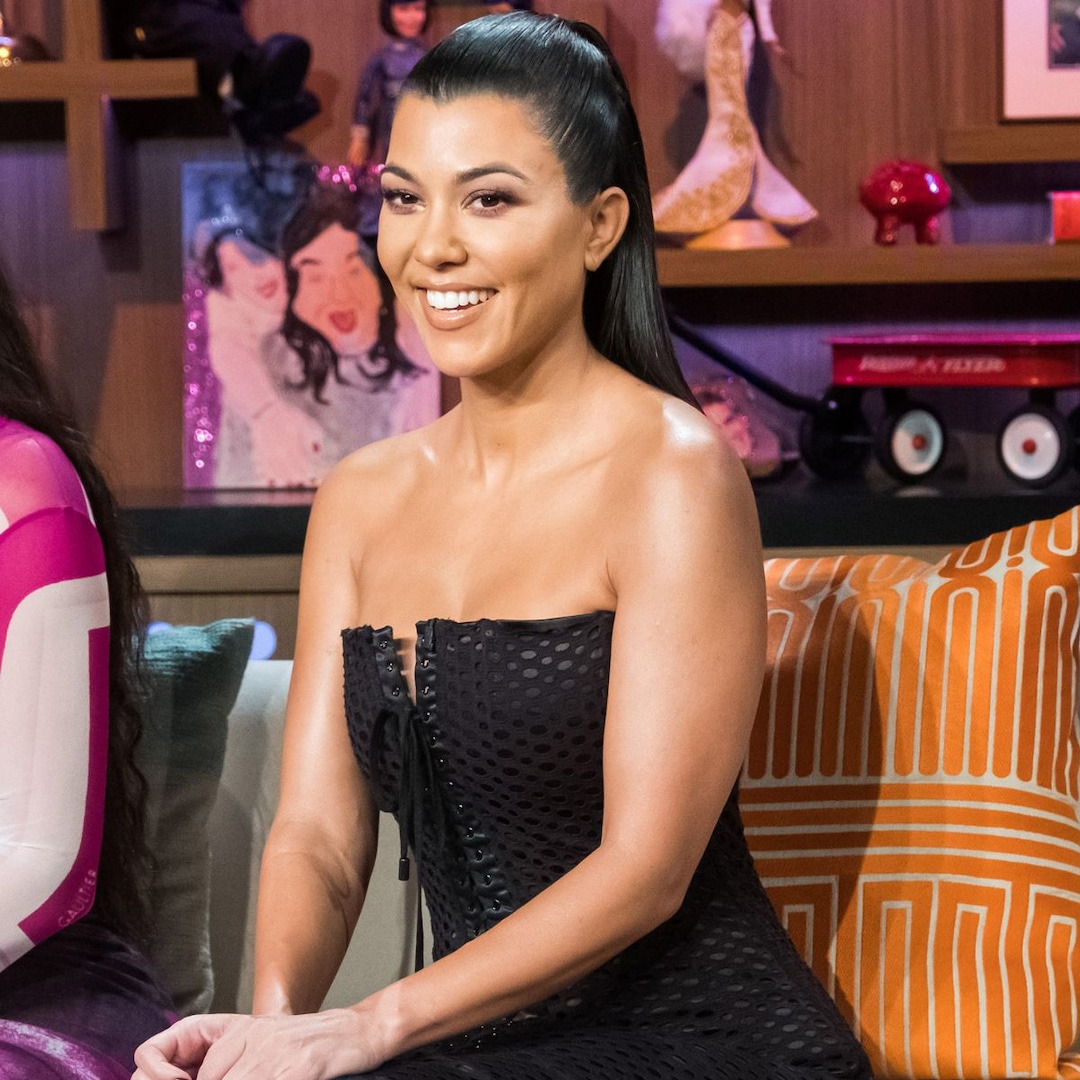
‘All the Light We Cannot See’s Director on Adapting the Prize-Winning Novel
Sep 12, 2023
The Big Picture
“All the Light We Cannot See” is a four-part Netflix miniseries based on Anthony Doerr’s novel, starring newcomer Aria Mia Loberti as a blind girl during WWII. Director Shawn Levy, known for “Stranger Things,” discusses adapting the book into a longer series and the challenges faced during filming. Loberti, who is blind in real life, delivers a masterful performance and was chosen through an open casting call by Netflix, proving herself as a talented and dedicated actor.
Amid the feature films at this year’s Toronto International Film Festival is executive producer and director Shawn Levy’s (Stranger Things) Netflix miniseries All the Light We Cannot See. The four-part series is based on the work of Pulitzer Prize-winning author Anthony Doerr’s novel of the same name, and the two stopped by Collider’s studio at the Cinema Center by MARBL Restaurant to talk with Editor-in-chief Steve Weintraub about adapting the story from page to screen with unknown talent alongside two major stars.
All the Light We Cannot See stars newcomer Aria Mia Loberti as Marie-Laure Leblanc, a young blind girl who goes to live in the seaside village of Saint-Malo with her locksmith father, Daniel LeBlanc (played by Mark Ruffalo) and her reclusive uncle, Etienne (Hugh Laurie) during World War II. Spending her time broadcasting radio stories, Marie-Laure catches the attention of Nazi soldier and radio technician Werner Pfennig (Louis Hofmann), who becomes fascinated by them, but they also capture the attention of his superiors, leading to suspicion that the broadcasts may veil coded messages. All the while, Nazi officer and gemologist Reinhold von Rumpel (Lars Eidinger) is on the hunt for a mythical gem, the Sea of Flames, which was once housed in the National History Museum, the very museum Marie-Laure’s father works at, and Reinhold is in hot pursuit.
During their sit-down, Levy and Doerr discuss adapting All the Light We Cannot See from the page to a four-part miniseries with Netflix. We learn why Levy, who claims Stranger Things, Shadow and Bone, Ryan Reynolds’ Free Guy, and so many more under his belt, was the perfect guy for the job. They discuss casting Loberti, who is blind in real life, to play Marie-Laure and what she brought to set for her first-ever onscreen appearance, the challenges faced while filming, and so much more. Levy also shares updates on his other highly-anticipated projects like Deadpool 3, Stranger Things Season 5, his Star Wars movie, and more. You can check out all of this in the video above or read the full transcript below.
COLLIDER: I really want to start with it a sincere congratulations on this project. I thought you did such a great job with this, and I’m sure you’re feeling relieved that he didn’t F it up?
ANTHONY DOERR: I’m thrilled. Shawn did an incredible job.
SHAWNY LEVY: But how nervous were you initially? Can I just take over the interview? I know they had tried to develop it as a movie, so when you heard that the guy who had done some Night at the Museum movies and we had produced Arrival and Stranger Things, how did you feel at first? Were you like, “In what world does that make sense?”
DOERR: At first, I was thrilled. I was so excited because the original plan when we sold the film rights was for, like, a 100-minute feature, so to be able to expand the material in our first phone call, and Sean was really emphasizing, “This could be four hours…” The novel’s 500 pages, so to be able to turn it into something four—even we were talking about six, maybe—[hours], something with a lot more space to explore the characters and the settings, I was thrilled. I was really excited.
However, yeah, when they did send me the link to watch the episodes, I think my password is, like, “VeryVeryNervous7,” or something like that. So, I was a little nervous.
LEVY: [Laughs] I did not know that.
DOERR: But I was thrilled.
Image via Netflix
I will say that, and I say this with all sincerity, if this had been a two-hour movie, it would have sucked, straight up. There’s too much material in this, and the advantage of streaming and Netflix to be able to do this gave the project enough money and time to be able to tell this story.
Shawn, I have a specific question for you. This is so out of your wheelhouse, so not anything that you’ve done before, was there a hesitation to take on a project that was so different or was there just tons of excitement to show that you could do something like this?
LEVY: You and I have known each other since Real Steel, I think, and so, you know, all my movies and shows, whether they’re action or comedy, I’m always trying to co-opt a small part of its DNA for heart and for emotion, but you have to be judicious in how you do that in a movie like Free Guy or The Adam Project. But always, coming up as a film student as a younger director, I wanted to make all kinds of stuff. So, for me, my idols are people like Peter Weir, people like [Steven] Spielberg, people who are not limited to genre and who get the privilege of working in a bunch of them.
I read this book when it first came out, I wanted it so badly, the rights were gone, they were developing it as a movie, and I felt like, “Oh, I feel like I know how to do this.” I will say maybe I was apprehensive on one level, but I just had this gut feeling that I knew these characters and I connected with these themes. The truth is that being able to tell a story where you don’t have to service the joke, you don’t have to service the action set piece, you’re just servicing character and writing, and you’re bringing that world to life, that was liberating and really, really gratifying to me.
DOERR: I would say it was Shawn’s wheelhouse – young actors, lots of heart, lots of humanity. Of course, maybe the sets, the 1938 cars, and stuff were new for him, but what was so encouraging to me when he first contacted me about the project was this is somebody who knows how to tell a story about curious kids with a lot of heart who want the best for each other, but circumstances are making things difficult for them.
LEVY: I never linked this to my body of work in that way, so thank you. I’m a little troublingly self-aware now, but thanks for making that connection.
So you essentially made a four-hour movie that’s in four parts. At what point of the shoot were you like, “What have I signed on for?”
LEVY: Well, we filmed in Budapest, it was a long shoot, it was 80-something days, I’m dealing with hundreds of extras and military sequences and war scenes…
DOERR: And COVID.
LEVY: Oh, yes, and COVID and being on the other side of the world and eight hours ahead of my family, my company 21 Laps, and all my friends. So, on the one hand, it felt daunting, but I will say that every day I had some sense of, “Oh, this is going to be worth it. This is gonna be worth it.” When I first put the show together, there have been many moments—in the edit room, on the mix stage, at the scoring stage with James Newton Howard—where I’ve sat back and I’ve said, very kind of consciously to myself, “Oh, this was worth it. This is why I went through all that.” I got to make something lyrical and epic, and hopefully audiences will agree, moving in a way that was new to me but which I’ve always aspired to.
I definitely want to talk about your lead, and I also want to give credit to Netflix for letting you cast a complete unknown. Talk a little bit about the casting process because she’s so good.
LEVY: Aria Mia Loberti. In fact, we have two girls who play Marie. The lead character in Tony’s book is Marie-Laure, who’s a blind French girl. I needed an eight-year-old, and I needed a 20-year-old, and we did an open casting call. Thanks to Netflix, which is this globally ubiquitous company, we just put out a flyer online. Anyone could send in an audition—sighted actors, unsighted actors, low vision, non-actors—and I got this audition from a nonactor. Her name was Aria, and she is a Fulbright scholar, Ph.D. student in Rhetoric. This is not only her first part, it was her first audition. When I saw this audition, I knew there might be something special there, and with every Zoom, with every callback, that gut feeling was confirmed. You’ve seen the show, it’s a really masterful performance. But again, this was someone who came to acting having never done it, so imagine any of us here learning how to do our job while doing that job in front of 300 people.
DOERR: She came to acting being told she wasn’t able to act as a young girl, too. So she really secretly wanted to have it.
Image via Netflix
LEVY: Yeah, that dream was discouraged. She has memories of being a kid and being told by theater teachers and others, “That’s not for you. That’s not gonna be your path.” And so it’s just kind of miraculous.
DOERR: She leapt out of, like, 1000, I think Shawn said “a numbing quantity” of auditions. She leapt out. She put on her grandmother’s clothes, so she was wearing period clothing, and she just screamed Marie when you saw her.
LEVY: I should also add, Steve, it’s not just that she came to this thing, “I don’t know how to do this, but I want to be great. Tell me how to be great. I’m gonna work to be great, so tell me how to do that,” and I did, and she could handle it. In fact, she wanted candor, which not all actors do, right? She wanted to know how to be great at this new endeavor. She also, every day, helped me because the script might say, “Marie feels for the couch and sits down,” but Aria would say, “Well, how long have I lived in this room? Because if I’ve lived here for a year and I live alone, and no one moves furniture, I don’t need to feel for that couch. I know where it’s going to be because I’ve mapped the space that I’m intimate with.” So things like that that are flouting the tropes and cliches of how we see this disability represented in 100 years of movies where a blind person has not played the blind character. So when you get two blind girls playing this blind character, I become as much the student as the leader.
DOERR: What shines through in her performance is not her disability but her capabilities, and she’s such a capable character, so I was really moved by her performance.
100%. By the way, if her performance doesn’t work, the whole thing falls apart. I’m curious fo for both of you, obviously, when we see Nazis depicted in movies, they’re always evil because they’re fucking evil, but you do have a sympathetic character that is a Nazi, and it made me realize that maybe, in a way, not everyone was gung-ho and they were still pulled in.
LEVY: That was probably something you were scratching at when you wrote this character, right?
DOERR: Absolutely. I mean, we live at this time of polarity where you’re just supposed to make a snap judgment about everybody, but life is so much more complex than that. Hitler youth was sweeping kids when they were 10, 11, 12-years-old. At the end of the war, they’re sending 14-year-olds off to battle. So, of course, he’s being indoctrinated by a new technology radio that’s coming into the world and is able to spread disinformation in a way that humans were not able to do at that time. So I hope, even as you recognize he’s making morally wrong decisions, you understand how Werner got to that situation in his life.
You should give a little bit more background on the character for people who haven’t seen or read the book or seen the trailer.
LEVY: I’ll take a whack at that. One of the two leads is a character named Werner, who is a German orphan who shows this early, almost prodigy-level skill with radios. He is taken from his orphanage and put into one of these Nazi training schools that were historically very real and would often indoctrinate the youth of Germany into this military, but into this ideology. Werner is a character who is not indoctrinated into that ideology, who has a love for technology, has a talent for this emerging technology, but who is actually committed to keeping his soul clean, who has a sister who literally says to him when he’s taken away, “Do not let them convince you, do not let them change you. Keep the frequency in your head the same.”
You mean 1310.
LEVY: Yes, I do mean frequency 1310!
Image via Photagonist at the at Collider TIFF Media Studio
It’s an inside joke.
LEVY: You really should see it.
You really should see it, and then you’ll understand.
LEVY: But anyway, to Tony’s point, that was the point is that, certainly, the Nazis are some of the most cruel, evil people we’ve seen in human history, but that doesn’t tell the full story of every individual. Werner is a fictional individual, but one who reminds us that the nuance of what a person is is not fully described by the uniform they’re put in.
Also, we should point out there are some very evil Nazis in the series.
LEVY: Oh yeah, this is hardly an apologist work. As a Canadian Jew back here in Canada, there was a choice. Obviously, the book is not a Holocaust story, but it is a World War II story, and the reality of what the Germans did in that time is abhorrent and appalling, and the fact that we’re even talking about or hearing about a resurgence of that ideology is fucking grotesque. So definitely, our show is committed to showing the grotesquery of that mindset, but it’s also really kind of zooming in on this one character and this one girl and this one boy and how their destinies intersect.
Image via Netflix
Talk a little bit about the fact that you were filming very close to the Ukraine border and that war was going on, and what it meant filming so close.
LEVY: Get this, we’re in the neighboring country to Ukraine, and we’re filming scenes of the exodus of refugees out of Paris when the Germans invaded. Some of the extras playing refugees marching west were Ukrainian refugees who had marched west into Hungary, where we were filming. So that was a mirroring of real life that was heartbreaking and kind of just took our breath away on those days.
The editing process is ultimately where this whole thing comes together, so what did you learn from friends and family screenings that were test screenings that impacted the final four episodes in ways you didn’t expect?
LEVY: Really good question. I learned that it’s hard to feel for a character– I read the book, and I read the script, so we would have certain scenes, particularly with Hugh Laurie’s character, Etienne, who is a damaged character. He’s traumatized from the first World War, and he lives agoraphobically in his house. Initially, there was a structure to one of the episodes where we were asking the audience to feel for that character before they had connected with that character. So we did a fairly radical restructure on Episode 4, in particular, in order to vest the audience with Hugh Laurie’s character before we’re asking the audience to feel for him. That was a big revelation. I’ve never done this where I watched the first cut that was assembled per the script, and I felt instantly, “Why am I not feeling it? Why am I not feeling it?” And so I sat there, and I handwrote every scene of the show on an index card, and I put them out on the floor, and then I started moving things around. Then I said to my editor, “Okay, do this version. Let me see this version.” So we literally restructured Episode 4 in an attempt to fully engage the audience and to have them feel the stakes of the characters before you see any outcomes of characters.
Editing is so amazing.
LEVY: People don’t even realize, man. I mean, performances are constructed in the edit room and can be destroyed in the edit room. I will say this about actors, though, I love actors. I think that’s clear from the way I cast all my movies. So, if an actor is giving me the good shit, I’ll let that take run long because those are the moments, where they’re not talking or it’s not a scripted behavior, where it feels like, “Oh man, there’s something really authentic happening here, and I just want to live with it.” When it’s done well, and when you allow the audience to kind of have those moments where it’s a little messier, a little more surprising, those are my favorites.
When you finally get the link, or however you’re gonna watch it, what is it like? First of all, did you actually have any notes or anything that you saw and were like, “We really should do this?”
DOERR: Well, of course, you’re seeing scripts all along, so I have plenty of notes as we’re getting there. I know that it was a final cut when I got to see it, but there was one chyron—those little date things at the bottom—that was wrong. I’m like, “I think I can tell Shawn about this.” [Laughs]
LEVY: The truth is that in script, especially, and that’s when I was most nervous. It’s an adaptation, right? There’s things that are in the book that aren’t in the show; there’s things that Steven Knight invented that are not in the book; I didn’t tell the full ending from the book. So, there were changes, and Tony, I have to say, had a fair number of notes in the script form, many of which Steve and I applied in the rewrites. But he also came to the understanding that this is a different medium, and it’s never gonna be 100% faithful.
DOERR: It’s so liberating to be reminded that if I want to blow up a building, it’s free! [Laughs] I just use language, these really inexpensive materials. Everything that Shawn decides costs money, so he has to make an infinity of decisions that, as a novelist, I’m just totally free to make. But I was also quite jealous of the collaborative nature of his job. Every decision has to be made by me. When he’s talking about ways that Aria brought new things to the character that weren’t in the script or that we couldn’t foresee as sighted people, that’s a kind of gift of collaborative work. So, I was really moved to see him work like a general with this vast army of people, keep everybody quiet, everybody’s en masse, there’s like this epic heat wave roasting Europe, and he’s got everybody positive late into the afternoon on the set. I just was so moved by his leadership skills on the whole set in Budapest.
I’ve spoken to a lot of authors about adaptations, and the truth is, the book is always there. It’s not like the book has gone away. It’s just this is this version.
DOERR: Yeah, this is a different thing. This is a totally different medium, and the best path to success is to let Shawn make the thing he wants to make. Whether or not it’s faithful in every single detail to the book doesn’t matter nearly as much as in terms of the heart, the beating heart of it. Do you care about these people? Do you feel for these kids when the circumstances of history are compressing them into these boxes that they really don’t want to be in?
With Netflix, you want to end things on cliffhangers because, obviously, it makes people wanna click play on the next episode. For example, Episode 1 ends on a cliffhanger and Episode 2 has stuff, so was that in the script phase? Is that a note that Netflix gives or do you sort of know because you’ve worked with them?
LEVY: You’re talking to the producer of Stranger Things. So the Duffers, one of their North Star principles is always stick the landing, but have people leaning in for what is coming next. So, credit to Steven Knight, all three episodes were built with a cliffhanger ending. But the way that my editor and I edited those final 60 seconds of every episode, for one thing, I know that has to be maximum captivating. I mean, there’s a bunch of things that I see that are Stranger Things-inspired in this show, even though they seem like they have nothing in common. Some of the metrics to the editing, some of the heightened sound work that we do on Stranger Things, we absolutely do in this, but definitely the way that we try to stick the landing, but invite that play next, play next! I guess after eight years of Stranger Things, that’s baked into my sensibility, and I wanted it for this, too.
DOERR: My son got to visit the set, it was his first year of college, so we got to see the show, I think, maybe in mid-April when he got home from college. I’m like, “Oh, and you’re gonna get to see the show that we helped make that we were there for.” He could not stop himself fast enough between [Episodes] 1 and 2 and 2 and 3 and 3 and 4. I’m like, “Don’t you want to eat or go to the bathroom or something?” But he was just like, “Here we go. I need the next one.”
Image via Netflix
Oh no, I’m letting everyone know Episode 1 ends on a cliffhanger… I mean, you’re gonna keep pushing play.
LEVY: [Episodes] 1, 2, and 3 are all cliffhangers. There’s no secret there. I’m showing my hand. Sometimes you can know the magic trick, but if it works, you still love the magic trick.
You obviously have a long relationship with Netflix, and the book was super popular, but was it tough to get them to say, “We want to make this?” Was it tough, or because of your success with them, are they sort of like, “We’re in the Shawn business?”
LEVY: Certainly, they say yes more readily because they’re in the Shawn business. I’ve tried to earn that faith by rewarding them on the bets they make on me. You know, whether it’s been Shadow and Bone or Stranger Things or Unsolved Mysteries or All the Light We Cannot See or The Adam Project. We’ve had a good run. We’re having a good run. But I would just say that Ted [Sarandos] and Bela Bajaria, they were really blunt. They’re like, “Look, we’re backing you. You want to do this with unknown, low vision or blind girls playing lead? Okay. We’re going to give you enough money to do it.”
I will tell you that the budget was not nearly a stratospheric as a lot of budgets we hear on other limited, both in Netflix and other networks and platforms. I pride myself on being efficient and pragmatic as a producer. But yeah, I guess they’re willing to bet on me. This was such a big title that it becomes its own form of IP, but they acquired the book, we got Steven Knight, who is as good a screenwriter as you can get, but then the big bet was, “Oh wait, you’re gonna cast people that no one’s ever heard of to play the two leads? The boy and the girl?” To which I said, “Yes, thank you, but I don’t want to give any money back. But I’ll tell you what, I’m gonna go find some famous people to play these two adult males.” And thankfully, I delivered with [Mark] Ruffalo and Hugh Laurie.
Image via Netflix/Empire
For quick updates, I’m assuming nothing has happened with Star Wars.
LEVY: We were just starting the process of developing my movie, and the writer strike happened. So we are in that holding pattern that so much of our industry is in.
The Real Steel TV series?
LEVY: Same, I could literally say, “See above.” Same. Still, as I told you, I want it as badly as the lovers of Real Steel want it, so alive, but paused.
Do you think a Free Guy sequel actually happens, or is it sort of like, “This was so good, it came out so great, do we want to make another?”
LEVY: I think it is definitely not assured. We love Free Guy and the love for Free Guy that has kind of resonated in aftershocks, if you will, in the last couple of years. That’s been thrilling to Ryan [Reynolds] and I. We are developing a sequel, but the truth is that you now have Barbie that has obviously left a mark about a character in a fictional world who comes to self-awareness. So, we’re only gonna make Free Guy 2 if it’s different than the first movie and if it’s different from other movies.
I’m a fan of Shadow and Bone. I don’t know what the status of Season 3 is.
LEVY: Neither do I.
Okay, I’ll leave it there. So how many days had you actually been filming before you got shut down on Deadpool 3?
SHAWN LEVY: 35 days.
Oh, so you were really into it?
LEVY: Yeah, we’re in it. We were exactly halfway through filming Deadpool and then we stopped.
Can I ask you, was there any consideration in filming your first 35 days, knowing that the strike might happen, where you wanted to shoot scenes that had VFX so you could get those done?
LEVY: That would have been smarter than I am. That would have been so savvy. But I guess, like others in our industry, I somehow thought this second strike would be averted. Then suddenly, it was upon us, and I had to send several hundred people home, and they’re still waiting to come back to work. So, I’m just really—I don’t use this word lightly—I’m yearning for a resolution that feels fair and equitable and gets this industry back to work.
Image by Jefferson Chacon
Can you tease anything about Deadpool 3 in terms of what it’s about?
SHAWN LEVY: I’ll just say that it very much leans into the fact that this one is Deadpool and Wolverine. This one is much more of a two-hander than either Deadpool movie has been. It’s still, as I told you, raw, audacious.
R-rated.
LEVY: Very much so. You have two major movie stars together in a movie playing their most iconic signature roles – that is director heaven. So the story, the tone, the movie itself leans into that gift of having Deadpool and Wolverine co-starring in a movie for the first time. So, we’re definitely not running away from that.
I know that you always direct episodes of Stranger Things. When the strike ends, they’re obviously gonna start filming Stranger Things, and you’re gonna be working on Deadpool, so do you think you’re actually going to direct any of the final season?
LEVY: Yes.
Image via Netflix
For sure?
LEVY: I believe for that show, I’ve been alongside Matt and Ross Duffer for all these years. I direct episodes every year. It’s a part of our brotherhood. It’s a part of my commitment and my love of the show, connecting with it as a director, as well as an executive producer, so I will go through hoops to figure out calendars to direct at least one episode.
All the Light We Cannot See premieres on Netflix on November 2.
Publisher: Source link
Kristen Stewart Shares Wild Meaning Behind New Tattoo
Kristen Stewart Shares Wild Meaning Behind New Tattoo Kristen wore a beautiful white Chanel suit, which consisted of a fitted jacket and trouser shorts — which just so happened to unveil a new tattoo on her leg. Just above the…
May 24, 2025
Billy Joel Diagnosed With Brain Disorder, Cancels Tour
Emilia Clarke's Brain AneurysmEmilia Clarke filmed battle scenes for Game of Thrones, but in 2019, she published an essay in The New Yorker titled "A Battle for My Life."Having a bad headache at the gym, "I reached the toilet, sank…
May 24, 2025
These 7 MAGA Celebrities Responded To Joe Biden's Diagnosis, And They're All Over The Place
I'm surprised we haven't heard from Roseanne yet.View Entire Post › Disclaimer: This story is auto-aggregated by a computer program and has not been created or edited by filmibee.Publisher: Source link
May 23, 2025
Kourtney Kardashian’s Thoughts on the School System
Travis Barker Shares Rare Pic of His and Kourtney Kardashian’s Son Rocky on Mother’s DayKourtney Kardashian is keeping up with her own curriculum. The Poosh founder, 46, shared her unconventional thoughts on the education system, including how she’s open to…
May 23, 2025
